8 Worst Habits for Your Bones As You Age

As you age, your bones endure wear and tear as they bear the brunt of your many daily activities. According to the National Council on Aging, maintaining strong, healthy bones becomes even more critical the older you get since lower bone density can result in osteoporosis and skyrocket your risk of fractures. While research shows that regular exercise like running and strength training can boost your bone health, certain daily habits can counteract these benefits and wreak havoc on your bones. That’s why we spoke with Laura Purdy, MD, MBA, a board-certified family physician in Fort Benning, Georgia, who discusses the eight worst habits for your bones as you age.
If these bad habits sound familiar, don’t worry—it’s never too late to start prioritizing your bone health. Whether you’re in your 30s, 40s, or beyond, these insights can help you preserve the strength and resilience of your skeletal framework. And while you can’t turn back the hands of time, you can certainly steer your lifestyle in a bone-friendly direction. Keep reading to learn more about the not-so-friendly habits that could weaken your bones and learn how to maintain excellent skeletal health as you age. Then, check out the 5 Best Mediterranean Lifestyle Tips for a Longer, Healthier Life.
Not getting enough calcium in your diet
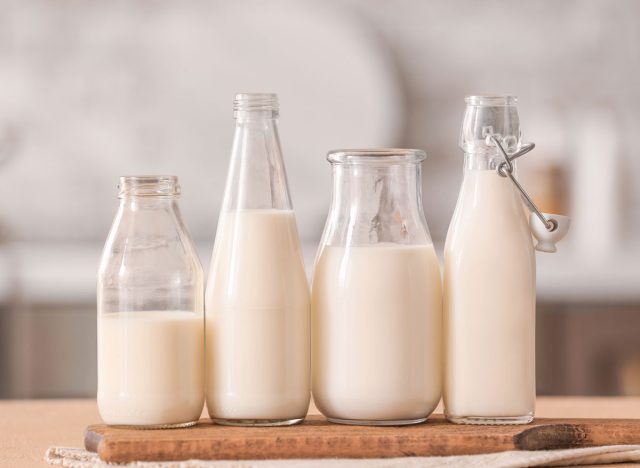
According to the National Institutes of Health (NIH), calcium is a vital building block for your bones, and not getting enough can weaken them over time. Incorporating dairy products like yogurt, milk, and cheese can help you meet your daily calcium needs. “Make sure you are consuming a diet with milk and other dairy products, fish, orange juice, leafy greens, nuts, seeds, and fruit,” advises Purdy.
A lack of calcium can lead to conditions like osteoporosis, making bones fragile and prone to fractures. However, according to the Cleveland Clinic, striking a balance is essential, as excessive calcium intake through supplements can adversely affect your health.
Consuming too much salt
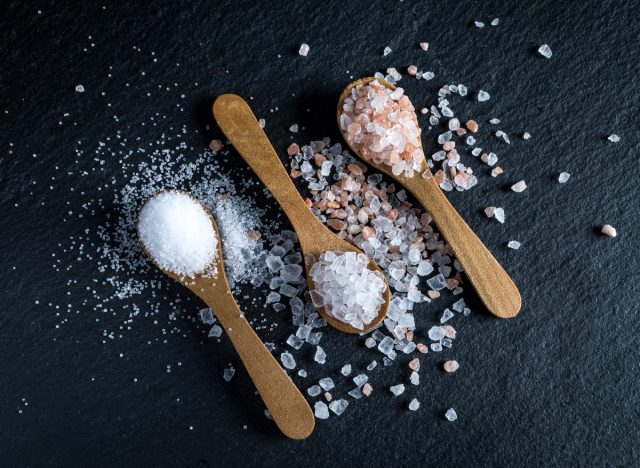
Studies show that high sodium intake can lead to calcium loss from your bones, weakening them. Be mindful of your salt intake by reducing processed foods and seasoning your meals with herbs and spices instead. Additionally, focus on consuming potassium-rich foods like bananas, oranges, and potatoes, as potassium helps your body excrete excess sodium, which can improve bone health. “Avoid consuming a diet with too much salt intake as salt weakens bones,” cautions Purdy.
Not exercising regularly
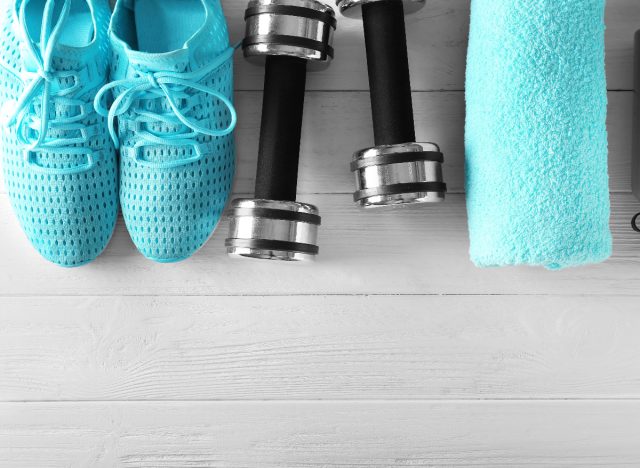
Physical activity, especially weight-bearing exercises like walking or lifting weights, is crucial in building and maintaining bone density. When you engage in these activities, research suggests your bones adapt by becoming stronger and denser, which can reduce the risk of fractures and osteoporosis.
“Not enough physical activity and moving your body can harm your bones. Even walking daily will positively impact your bone health,” says Purdy. Aim for at least 150 minutes of moderate-intensity weekly exercise, such as brisk walking, dancing, or cycling.
Sitting too much

A sedentary lifestyle can adversely affect bone health, reducing bone density and strength. Prolonged periods of sitting, like working an office job or excess screen time, can raise your risk of bone-related issues, among other health concerns. “Sitting for long periods and not getting outside will impact bone health and mobility,” stresses Purdy.
To counteract this, make a conscious effort to break up long periods of sitting with short bursts of movement throughout the day. Simple activities like standing, stretching, or walking for a few minutes every hour can help improve blood circulation and reduce the negative impact of extended sitting.
Drinking alcohol in excess

“Drinking excess alcohol blocks calcium absorption, which prevents the good minerals you consume from being absorbed, so your bones become weaker,” explains Purdy. Calcium is a critical mineral that provides the structural foundation for your bones.
To support your bone health, it’s essential to consume alcohol in moderation if you choose to drink. For women, the National Institute on Alcohol Abuse and Alcoholism recommends up to one drink per day, and for men, up to two drinks per day.
Consuming too many carbonated beverages
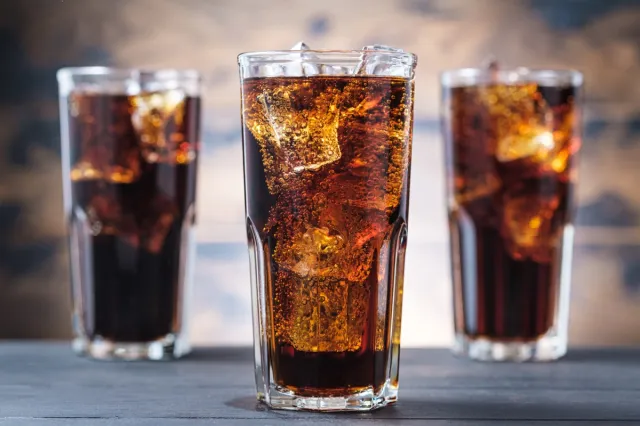
Some studies suggest that the high levels of phosphoric acid in soda can increase calcium excretion from the body, potentially weakening bones over time and leading to fractures. “Drinking too many carbonated drinks may satisfy your thirst but don’t provide your body with nutrients,” says Purdy.
To support your bone health, consider reducing your sugary and carbonated beverages intake. Instead, choose healthier beverage choices like water, herbal teas, or calcium-fortified alternatives such as fortified plant-based milk or orange juice. These options provide hydration and essential nutrients like calcium and vitamin D, which are crucial for bone strength and overall health.
Smoking tobacco

A 2021 study revealed that the harmful chemicals in tobacco smoke can disrupt the normal processes of bone remodeling, leading to bone loss and fragility. “Tobacco use can lead to the breakdown of bones because it’s a hormone disruptor,” explains Purdy. Additionally, smoking is associated with reduced blood flow to the bones, which can further contribute to bone weakening. While quitting smoking is undoubtedly challenging, it’s crucial to protecting your bones and reducing the risk of fractures.
Not getting enough calories
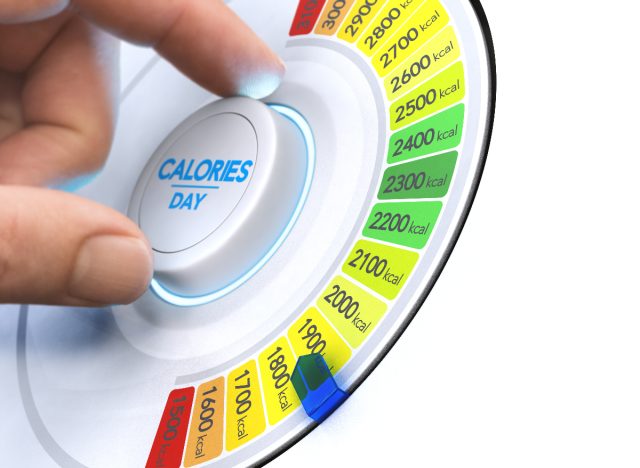
“Not consuming enough calories can have its own set of complications because you have less bone mass as you age,” says Purdy. Not feeding your body sufficient calories could lead to weakened bones, as they require a consistent supply of nutrients like calcium, vitamin D, and protein to stay healthy. To protect your bone health, it’s crucial to aim for a balanced diet that provides enough calories to support your bones and overall well-being.
- Source: https://www.ncoa.org/older-adults/physical-health/bone-health
- Source: https://www.ncbi.nlm.nih.gov/pmc/articles/PMC6323511/
- Source: https://ods.od.nih.gov/factsheets/Calcium-Consumer/
- Source: https://health.clevelandclinic.org/too-much-calcium-supplements/
- Source: https://www.ncbi.nlm.nih.gov/pmc/articles/PMC6140170/
- Source: https://www.actiononsalt.org.uk/salthealth/factsheets/osteoporosis/
- Source: https://www.ncbi.nlm.nih.gov/pmc/articles/PMC6323511/
- Source: https://www.ncbi.nlm.nih.gov/pmc/articles/PMC7700832/
- Source: https://www.ncbi.nlm.nih.gov/pmc/articles/PMC6761900/
- Source: https://www.niaaa.nih.gov/alcohol-health/overview-alcohol-consumption/moderate-binge-drinking
- Source: https://www.ncbi.nlm.nih.gov/pmc/articles/PMC7071508/
- Source: https://ods.od.nih.gov/factsheets/VitaminD-Consumer/
- Source: https://www.ncbi.nlm.nih.gov/pmc/articles/PMC8234270/
- Source: https://orthoinfo.aaos.org/en/staying-healthy/smoking-and-musculoskeletal-health/









